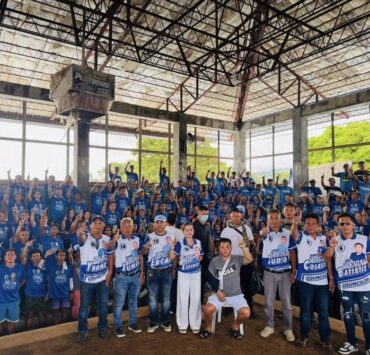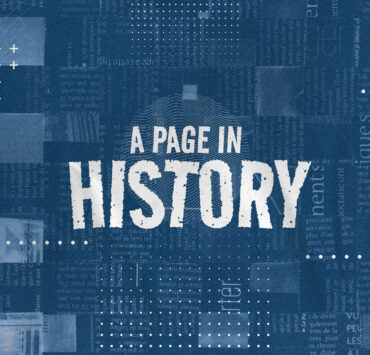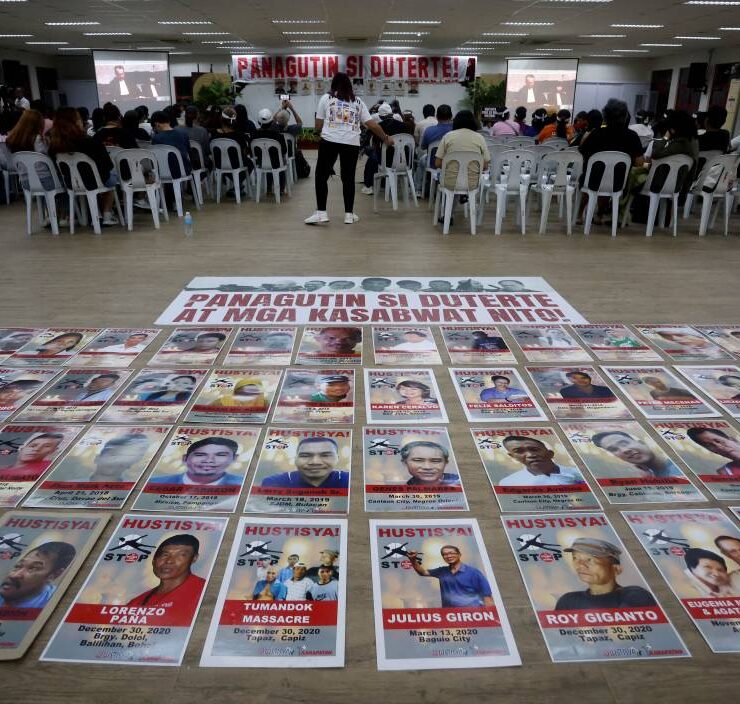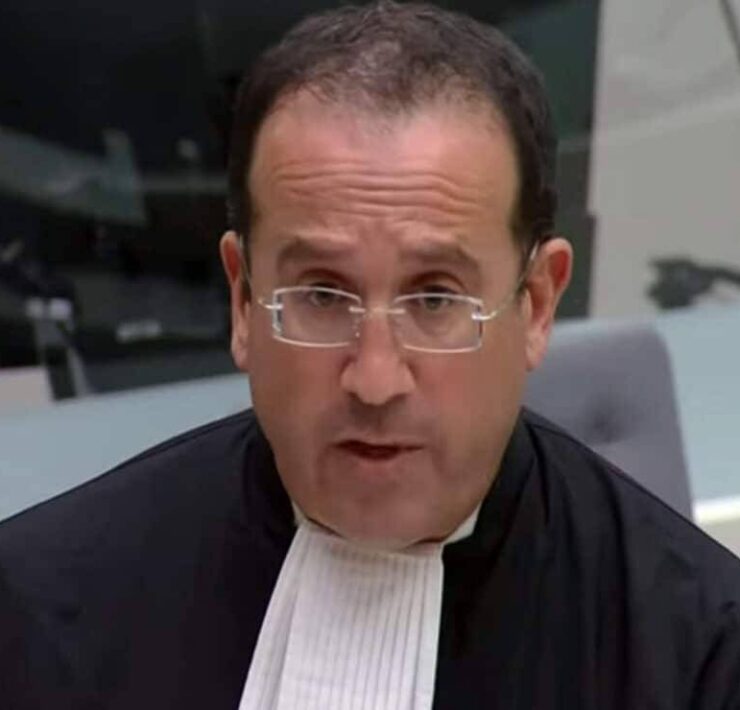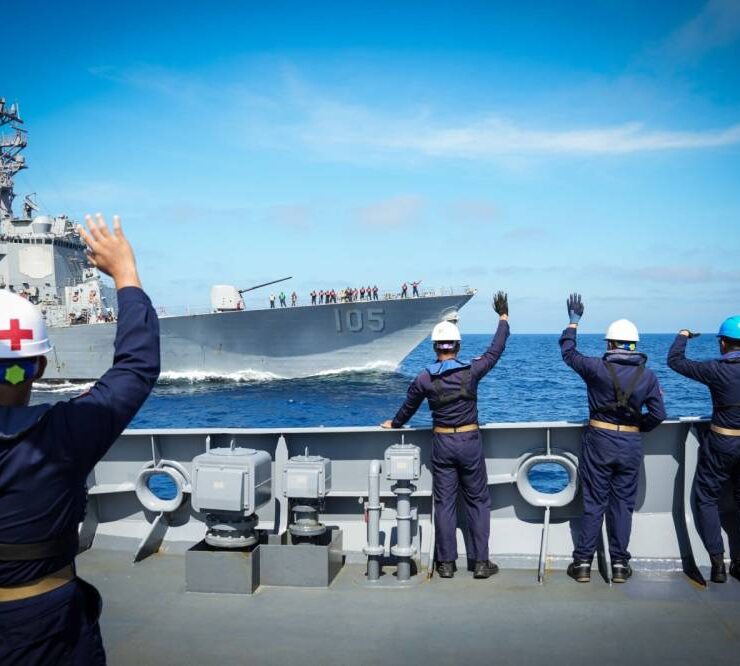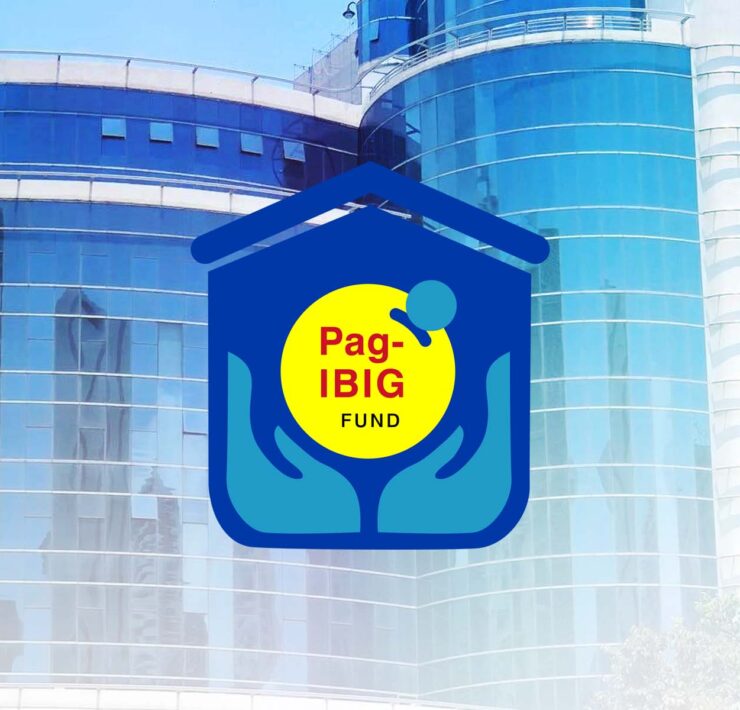Hope gathers EJK victims’ families on Palm Sunday
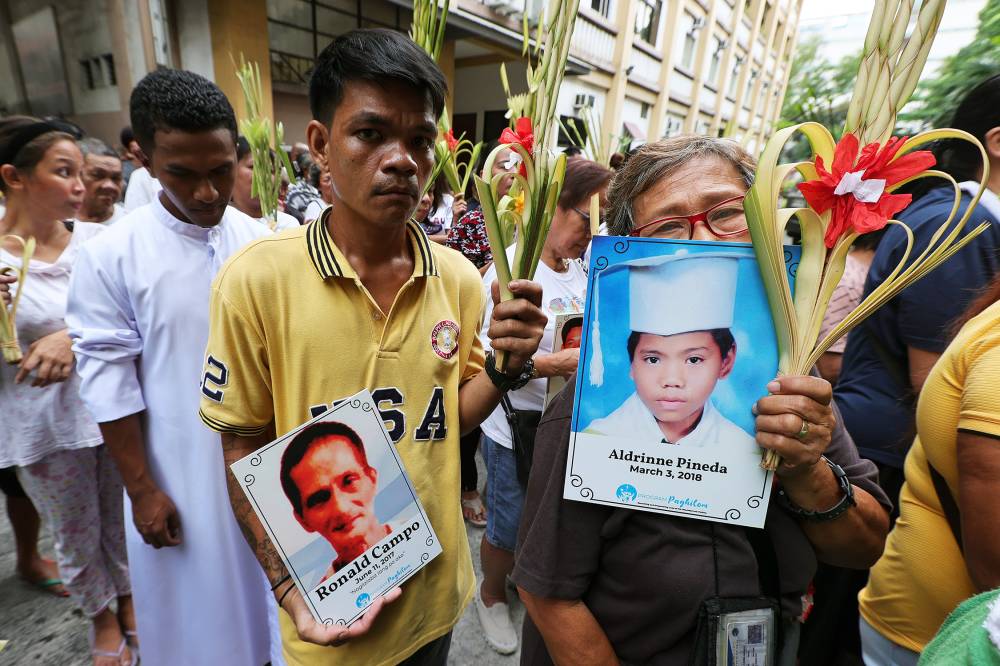
For some of the families of the people killed during the drug war of Rodrigo Duterte, justice will be served if the former president is convicted by the International Criminal Court (ICC) and they are compensated for losing their breadwinners.
The eldest son of Maria (not her real name) was only 17 when he was abducted in 2021 by unidentified men in Quezon City and found dead a few days later with two gunshot wounds to the head.
She asked the police for help, only to be told that the killing was justified because her son was a “drug addict.”
“It was hard because it was only my son helping me provide food on our table. When he was gone, our family was miserable. We do not know where we will ask for help,” she told the Inquirer.
At that time, she did not want to go out of their house for fear that she and her younger daughters would be targeted next.
But on Palm Sunday, she joined a hundred family members whose loved ones were also killed as they gathered at the Arnold Janssen (AJ) Kalinga Foundation compound in Sta. Cruz, Manila, waving their palm fronds to commemorate the triumphant entry of Jesus Christ in Jerusalem.
For Maria, Duterte’s arrest on March 11 under a warrant issued by the ICC was a “glimmer of hope” that justice would be served for the families of victims of extrajudicial killings (EJKs).
Duterte is currently detained in The Hague, where he will be tried for murder as a crime against humanity in connection with the thousands of EJKs committed when he was Davao City mayor and later president, a period covering 2011 to 2019.
The case of Maria’s son may not be among the 43 deaths which the trial will dwell into, but she said that “seeing Duterte behind bars was enough to give us courage to go out and let our calls for justice be heard again.”
“But we are also hoping that a form of compensation will be given to us. It was really hard that our breadwinners were killed just like that,” Maria said.
Reparations may be provided to victims should an accused be convicted, according to a video explainer by the ICC.
This includes the granting of monetary compensation, rehabilitation or medical support.
In case the assets of an accused are not enough for reparations, the ICC has a fund that it may use.
“In many cases, the impact of the crime can be immense, and the guilty person doesn’t have enough financial resources to compensate for the potentially large number of victims,” the ICC said. “This is why states have also created a trust fund for victims, financed by voluntary contributions, to assist in executing the reparations ordered by the judges.”
New life
Palm Sunday marks the start of Holy Week in this predominantly Catholic country, recounting the suffering, death and resurrection of Jesus.
For Fr. Flavie Villanueva, SVD, the foundation’s president who has been supporting families of drug war victims, Holy Week is a symbol for them that a new life is at hand after suffering and death.
“Our brothers and sisters here, who are the homeless and the poor whose loved ones were victims of the drug war, are considered the lowest of our society. Every hour and every day, suffering and death are part of their lives, just like Jesus Christ,” Villanueva noted.
“But suffering and death should end through a new life,” he added, noting that the families are hoping for this after seeing Duterte incarcerated.
Villanueva compared Duterte to the people and leaders who called for the crucifixion and death of Jesus.
“Duterte also ordered to kill, kill, kill all the drug addicts in the country. And the police were more than willing to comply with it. I pray that he will regret and atone for all those words he had spoken,” he said.
According to Villanueva, the Palm Sunday gathering was among the biggest of the events attended by families of drug war victims in the past years.
“Duterte’s arrest gave them the courage to go out and call for justice for their loved ones. It also helped them that the government is giving them support. This is why we are continuing to provide them a safe haven where they will not forget to stand up and express their call for justice even if it takes long,” he said.
Assistance
Most of those who attended the gathering were beneficiaries of AJ Kalinga Foundation’s “Paghilom” program, which aims to help widows, orphans, family members and communities of the drug war victims “in healing and rebuilding their lives.”
The program provides them with food and health needs, psychospiritual intervention, legal assistance, and educational and livelihood aid.
The foundation was not involved in enlisting the families under their care to be witnesses before the ICC.
Human rights lawyer Kristina Conti, who has been assisting the families of the victims in the investigation of the case against Duterte, said the term “victims” in the ICC case referred not only those who were killed in the drug war themselves but also to their family members who suffered “psychological harm” from their violent deaths.














